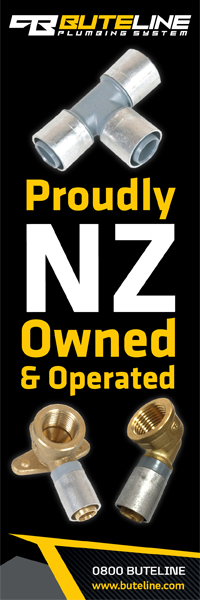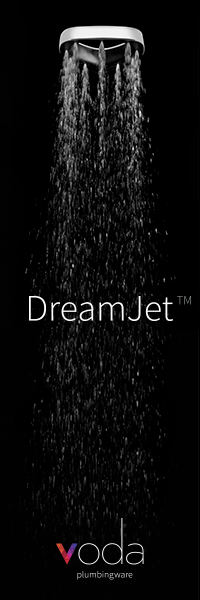Emergencies—what to do?
19 April 2018
Plumbing emergencies are stressful, especially if you don’t understand what is going on.
To help, the Master Plumbers team have put together this simple step-by-step guide to dealing with emergencies of the plumbing, gas and drainage kind.
PLUMBING
Water leaks can do real damage to your property, and need to be stopped fast. Here’s how:
1. Shut off the water
If your water supply is connected to the council water main, you can do this at the toby (aka stopcock or isolating valve)—usually located at the boundary of your property under a metal or plastic cover.
Just lift the cover and turn the handle to off (usually clockwise).
2. Check your hot water cylinder
If it's a major water leak, turn the water off to your cylinder at the isolating valve, normally located near the base or under the cylinder. The heating element should also be turn off—at the switch for electric water heaters, or the gas isolating valve for gas cylinders. If in doubt, call your local Master Plumber/Gasfitter for assistance.
3. Deal with small leaks
For smaller leaks, put buckets under the drip or towels around pipes to reduce damage.
4. Call your plumber
Call an authorised plumber quickly. An expert, authorised plumber will tell you what you need to do while you wait for them to arrive.
Things to do BEFORE a plumbing emergency happens
- Locate your toby or water tank tap and know how to turn it off. If you're on the council mains and can't find your toby, give your local council a call.
- Keep the number of a trusted Master Plumber handy. Find a list of qualified and authorised Master Plumbers on this website.
GAS
So, you smell gas and suspect it could be a leak. What to do?
1. Shut off the gas
If you have a metered natural gas supply, turn the meter valve handle to horizontal (you may need a spanner for this).
If the smell is coming from around the meter, shut it off and call your gas provider straight away (eg, Genesis, Contact, Nova, Mercury).
Alternatively, if you have LPG bottled gas, turn off the valve on the top of the bottle/cylinder.
2. Turn off appliances
Check that all your gas appliances are turned off.
3. Extinguish naked flames
Extinguish cigarettes, matches, lighters and open fires.
4. Don't turn electrical appliances off or on
Do NOT turn any electrical appliances or switches off or on (including mobile phones) near or in the same space as the gas leak
5. Ventilate the property
If it's safe to do so, open doors and windows.
6. Call your gasfitter
Get an authorised gasfitter to visit your property. Don’t turn on your gas supply or appliances until they have visited and said it’s safe to do so.
When to get out immediately
- If there are also sparks or flames, get out and call 111
- If you hear gas 'hissing'—get out and call 111.
Things to do BEFORE a gas emergency happens
- Locate your gas meter or bottled gas supply and know how to turn off the gas.
- Keep the number of your gas provider handy.
- Keep the number of a trusted Master Gasfitter to hand. Find a list of qualified and authorised Master Gasfitters on this website.
DRAINAGE
A blocked sewage drain or waste pipes can have pretty unpleasant consequences.
1. Prevention is better than cure
There are steps you can take to prevent your drains getting blocked in the first place. Let everyone in your home know not to put fats and oils down the sink or ‘wet wipes’, cotton balls and sanitary pads down the loo! Remember, the toilet is not a rubbish bin.
2. Some simple fixes
Prevention tips include regularly cleaning your waste pipes with a cupful of vinegar, or a handful of baking soda followed by a jug of hot water. Keep plug and waste outlets clean, and regularly remove hair and soap build-up from shower wastes—and dispose of in the rubbish bin.
In the garden, roots from trees and shrubs can grow into drains underground, especially the older earthenware or clay pipe type drains. Consider this when planting and developing your garden. If tree roots prove problematic, you may need to remove the offending tree or shrub.
3. Call your drainlayer
If your drains do become blocked, you will need the services of an authorised drainlayer quickly. Find a list of qualified and authorised Master Plumbers/Drainlayers on this website.
Things to do BEFORE a drainage emergency happens
- Keep the number of a trusted plumber and drainlayer to hand. Find a list of qualified and authorised Master Plumbers and Drainlayers on this website.














































